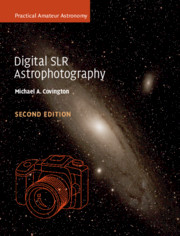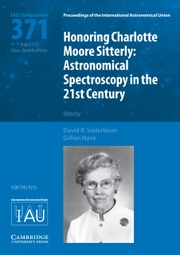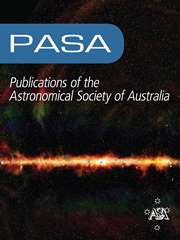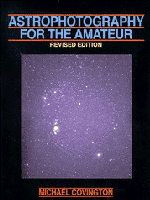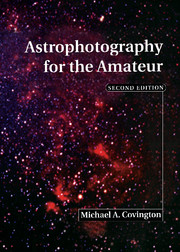Celestial Objects for Modern Telescopes
Based on field notes made by the author during his own career as an amateur astronomer, this unique guide covers both the traditional and novel approaches to studying the night sky. In addition to the more standard techniques, it discusses the latest modern resources available to today's astronomer, such as personal computers, the Internet, and computerized telescopes. It includes practical advice on aspects such as site selection and weather; provides the reader with detailed instructions for observing the Sun, Moon, planets, and all types of deep-sky objects; and it introduces newer specialities such as satellite observing and the use of astronomical databases. The book concludes with detailed information about 200 stars, clusters, nebulae, and galaxies, suitable for viewing with modest-sized telescopes under suburban conditions. Written to complement How to Use a Computerized Telescope, this book will also appeal to astronomers with more traditional equipment.
- Designed as a modern handbook for a new generation, it places strong emphasis on computers, the Internet, new data sources, and computer-controlled telescopes
- Where appropriate, maps in the book are mirror-imaged to match the view in 80% of modern telescopes
- The catalogue of interesting deep-sky objects is specifically tailored for observers in suburban areas affected by light pollution
Reviews & endorsements
"This book is highly recommmended for all public, college and university libraries. The modest price would also make it an attractive purchase for private collections as well." E-STREAMS
"Altogether, one of the best field guides available. Highly recommended." Choice
Product details
January 2007Adobe eBook Reader
9780511257834
0 pages
0kg
90 b/w illus. 16 tables
This ISBN is for an eBook version which is distributed on our behalf by a third party.
Table of Contents
- Preface
- Part I. Amateur Astronomy:
- 1. Using this book effectively
- 2. Observing sites and conditions
- 3. The Moon, the Sun, and eclipses
- 4. The planets
- 5. Comets, asteroids (minor planets), and artificial satellites
- 6. Constellations
- 7. Stars - identification, nomenclature, and maps
- 8. Stars - physical properties
- 9. Double and multiple stars
- 10. Variable stars
- 11. Clusters, nebulae, and galaxies
- Part II. Celestial Objects for Suburban Telescopes:
- 12. Celestial objects for suburban telescopes
- 13. The January-February sky (R.A. 6h-10h)
- 14. The March-April sky (R.A. 10h-14h)
- 15. The May-June sky (R.A. 14h-18h)
- 16. The July-August sky (R.A. 18h-22h)
- 17. The September-October sky (R.A. 22h-2h)
- 18. The November-December sky (R.A. 2h-6h)
- Part III. Appendices: A. Converting decimal minutes to seconds
- B. Precession from 1950 to 2000
- C. Julian date, 2001–2015.


